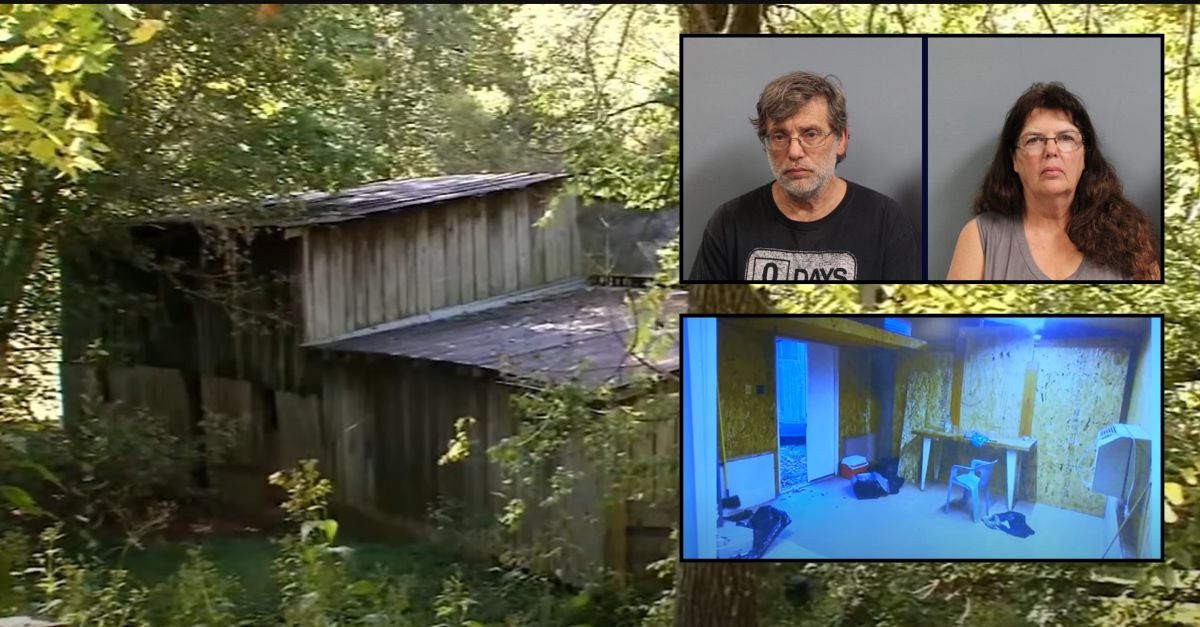Let me tell you a story that’s both shocking and heart-wrenching. In a courtroom in Charleston, West Virginia, Donald Ray Lantz, 64, and Jeanne Kay Whitefeather, 63, faced the music for what they did to their adopted children. It’s a tale that unfolds like something out of a nightmare, but it’s real, folks. This isn’t just a legal case; it’s a human story about abuse, neglect, and exploitation that’s left many people across the country questioning how something like this could happen.
The Trial Begins
It all started back on January 16, 2025, in Kanawha County Circuit Court, where the trial began. This wasn’t just any trial—it was the moment when the public got a glimpse into the lives of these children, who were treated more like property than human beings. The couple, who appeared calm and composed in court, faced a barrage of charges, including child abuse, neglect, forced labor, and human trafficking. The courtroom was packed with spectators, many of them visibly emotional as the details unfolded.
How It All Began
Back in October 2023, authorities discovered two of the couple’s adopted children locked inside an outbuilding. The children, who were in deplorable conditions, had been subjected to unimaginable treatment. The couple had adopted these children from a shelter for homeless and vulnerable youths, targeting them specifically for forced labor. It’s a chilling reminder that sometimes, even the most well-meaning systems can fail those they’re meant to protect.
Read also:Brunello Cucinelli Brings Italian Elegance To La
These kids, ranging in age from 6 to 16, were treated as slaves. They were made to work long hours under grueling conditions, sleeping in a barn without basic comforts or care. It’s a situation that’s hard to comprehend, but the evidence was clear. Surveillance footage, which the couple themselves had installed, showed the children being monitored like prisoners. This wasn’t just neglect—it was a calculated effort to exploit them for labor.
Inside the Courtroom
As the trial progressed, the jury heard from numerous witnesses, including deputies, neighbors, and even one of the children. Each testimony painted a clearer picture of the horrors these kids endured. The oldest daughter’s testimony, in particular, was gut-wrenching. She described the abuse, the fear, and the constant struggle to survive in such a hostile environment. It was a powerful moment that left the courtroom silent and deeply moved.
The prosecution presented video surveillance footage that showed the children being confined in the barn, their every move monitored by the couple. It was a stark reminder of how technology, meant to protect, was twisted into a tool of oppression. The defense tried to argue that the couple’s actions were misunderstood, but the evidence was overwhelming. By the time the trial reached its fifth day, the jury had seen enough.
Verdict and Sentencing
On January 29, 2025, the jury returned a guilty verdict on multiple counts, including forced labor, human trafficking, and child abuse and neglect. Jeanne Kay Whitefeather was also convicted of civil rights violations based on race, a charge that added another layer of complexity to the case. The sentences handed down were severe: Whitefeather received 215 years in prison, while Lantz was sentenced to 160 years. It’s a punishment that reflects the gravity of their crimes.
Kanawha County Prosecuting Attorney Debra Rusnak addressed the press after the sentencing, emphasizing the importance of justice for the children. She noted that this case serves as a wake-up call for society to pay closer attention to the welfare of vulnerable children. These sentences aren’t just about retribution; they’re about sending a message that such abuse will not be tolerated.
Community Reaction
Outside the courtroom, the community reacted with a mix of anger and relief. Neighbors who had suspected something was amiss but didn’t know the full extent of the abuse expressed shock and sadness. Some recounted stories of seeing the children dressed in ratty clothing, working long hours in the yard, and looking malnourished. Others spoke of the couple’s outward appearance of wealth and respectability, which made their actions all the more shocking.
Read also:Joe Ingles Journey Balancing Basketball And Family Life
It’s a reminder that abuse doesn’t always happen in the shadows. Sometimes, it happens right under our noses, in homes that appear normal from the outside. This case has sparked conversations about how we, as a society, can do better to protect children and hold abusers accountable. It’s not just about laws and policies—it’s about being vigilant and speaking up when we see something that doesn’t seem right.
Looking Forward
As the couple prepares to serve their sentences, the focus now shifts to the healing of the children. They’ve been placed in safe environments where they can begin to rebuild their lives. It’s a long road ahead, but with the right support, they have a chance to move forward and reclaim their childhoods. The legal system has done its part, but the real work lies in ensuring that these kids get the care and compassion they deserve.
For the rest of us, this case serves as a powerful reminder of the importance of empathy and vigilance. It’s not enough to simply be aware of the issues; we must take action when we see signs of trouble. Whether it’s reporting suspected abuse or advocating for stronger protections for vulnerable children, we all have a role to play in creating a safer, more just world.


